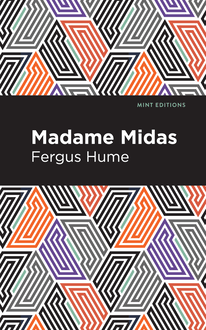-
 Univers
Univers
-
 Ebooks
Ebooks
-
 Livres audio
Livres audio
-
 Presse
Presse
-
 Podcasts
Podcasts
-
 BD
BD
-
 Documents
Documents
-
- Cours
- Révisions
- Ressources pédagogiques
- Sciences de l’éducation
- Manuels scolaires
- Langues
- Travaux de classe
- Annales de BEP
- Etudes supérieures
- Maternelle et primaire
- Fiches de lecture
- Orientation scolaire
- Méthodologie
- Corrigés de devoir
- Annales d’examens et concours
- Annales du bac
- Annales du brevet
- Rapports de stage
La lecture à portée de main
Vous pourrez modifier la taille du texte de cet ouvrage
Découvre YouScribe en t'inscrivant gratuitement
Je m'inscrisDécouvre YouScribe en t'inscrivant gratuitement
Je m'inscrisEn savoir plus
Vous pourrez modifier la taille du texte de cet ouvrage
En savoir plus

Description
Arsène Lupin (1909) is a novel by Maurice Leblanc. Originally a four-act play, the story was turned into a novel by Leblanc before being translated into English by Edgar Jepson. Partly based on the life of French anarchist Marius Jacob, Arsène Lupin first appeared in print in 1905 as an answer to Sir Arthur Conan Doyle’s Sherlock Holmes. Blending crime fiction, fantasy, and mystery, Leblanc crafts original and entertaining tales of adventure starring one of the greatest literary characters of all time—Arsène Lupin, gentleman thief.
Arsène Lupin is the world’s greatest thief, an unmatched force for good whose exploits threaten the wealth and standing of France’s most wicked men. In this early installment of Leblanc’s beloved series, Lupin uses his remarkable wit and chameleon-like ability to move undetected through aristocratic society in order to steal, trick, and cheat his way through life. Despite his criminal nature, he operates under a strict moral code, only taking from those who have taken from the poor all their lives. In this novel, he comes up with an elaborate plan to get his hands on the art and jewels of a notorious collector, a man whose taste for fine objects can only be satisfied through exploitation and greed. As though the risks involved were not high enough, Lupin leave clues for police every step of the way, heightening pressure on himself and embarrassing a nation’s incompetent leaders in the process. Arsène Lupin is a story of romance, mystery, and crime that continues to astound over a century after it was published.
With a beautifully designed cover and professionally typeset manuscript, this edition of Maurice Leblanc’s Arsène Lupin is a classic of French literature reimagined for modern readers.
Sujets
Informations
| Publié par | Mint Editions |
| Date de parution | 24 mars 2021 |
| Nombre de lectures | 0 |
| EAN13 | 9781513295183 |
| Langue | English |
Informations légales : prix de location à la page 0,0500€. Cette information est donnée uniquement à titre indicatif conformément à la législation en vigueur.
Extrait
Arsène Lupin
Maurice Leblanc
Arsène Lupin was first published in 1908.
This edition published by Mint Editions 2021.
ISBN 9781513292335 | E-ISBN 9781513295183
Published by Mint Editions®
minteditionbooks.com
Publishing Director: Jennifer Newens
Design & Production: Rachel Lopez Metzger
Project Manager: Micaela Clark
Typesetting: Westchester Publishing Services
C ONTENTS I. T HE M ILLIONAIRE ’ S D AUGHTER II. T HE C OMING OF THE C HAROLAIS III. L UPIN ’ S W AY IV. T HE D UKE I NTERVENES V. A L ETTER FROM L UPIN VI. A GAIN THE C HAROLAIS VII. T HE T HEFT OF THE M OTOR -C ARS VIII. T HE D UKE A RRIVES IX. M. F ORMERY O PENS THE I NQUIRY X. G UERCHARD A SSISTS XI. T HE F AMILY A RRIVES XII. T HE T HEFT OF THE P ENDANT XIII. L UPIN W IRES XIV. G UERCHARD P ICKS UP THE T RUE S CENT XV. T HE E XAMINATION OF S ONIA XVI. V ICTOIRE ’ S S LIP XVII. S ONIA ’ S E SCAPE XVIII. T HE D UKE S TAYS XIX. T HE D UKE G OES XX. L UPIN C OMES H OME XXI. T HE C UTTING OF THE T ELEPHONE W IRES XII. T HE B ARGAIN XXIII. T HE E ND OF THE D UEL
I
T HE M ILLIONAIRE ’ S D AUGHTER
T he rays of the September sun flooded the great halls of the old chateau of the Dukes of Charmerace, lighting up with their mellow glow the spoils of so many ages and many lands, jumbled together with the execrable taste which so often afflicts those whose only standard of value is money. The golden light warmed the panelled walls and old furniture to a dull lustre, and gave back to the fading gilt of the First Empire chairs and couches something of its old brightness. It illumined the long line of pictures on the walls, pictures of dead and gone Charmeraces, the stern or debonair faces of the men, soldiers, statesmen, dandies, the gentle or imperious faces of beautiful women. It flashed back from armour of brightly polished steel, and drew dull gleams from armour of bronze. The hues of rare porcelain, of the rich inlays of Oriental or Renaissance cabinets, mingled with the hues of the pictures, the tapestry, the Persian rugs about the polished floor to fill the hall with a rich glow of colour.
But of all the beautiful and precious things which the sun-rays warmed to a clearer beauty, the face of the girl who sat writing at a table in front of the long windows, which opened on to the centuries-old turf of the broad terrace, was the most beautiful and the most precious.
It was a delicate, almost frail, beauty. Her skin was clear with the transparent lustre of old porcelain, and her pale cheeks were only tinted with the pink of the faintest roses. Her straight nose was delicately cut, her rounded chin admirably moulded. A lover of beauty would have been at a loss whether more to admire her clear, germander eyes, so melting and so adorable, or the sensitive mouth, with its rather full lips, inviting all the kisses. But assuredly he would have been grieved by the perpetual air of sadness which rested on the beautiful face—the wistful melancholy of the Slav, deepened by something of personal misfortune and suffering.
Her face was framed by a mass of soft fair hair, shot with strands of gold where the sunlight fell on it; and little curls, rebellious to the comb, strayed over her white forehead, tiny feathers of gold.
She was addressing envelopes, and a long list of names lay on her left hand. When she had addressed an envelope, she slipped into it a wedding-card. On each was printed:
“M. Gournay-Martin has the honour to inform you of the marriage of his daughter Germaine to the Duke of Charmerace.”
She wrote steadily on, adding envelope after envelope to the pile ready for the post, which rose in front of her. But now and again, when the flushed and laughing girls who were playing lawn-tennis on the terrace, raised their voices higher than usual as they called the score, and distracted her attention from her work, her gaze strayed through the open window and lingered on them wistfully; and as her eyes came back to her task she sighed with so faint a wistfulness that she hardly knew she sighed. Then a voice from the terrace cried, “Sonia! Sonia!”
“Yes. Mlle. Germaine?” answered the writing girl.
“Tea! Order tea, will you?” cried the voice, a petulant voice, rather harsh to the ear.
“Very well, Mlle. Germaine,” said Sonia; and having finished addressing the envelope under her pen, she laid it on the pile ready to be posted, and, crossing the room to the old, wide fireplace, she rang the bell.
She stood by the fireplace a moment, restoring to its place a rose which had fallen from a vase on the mantelpiece; and her attitude, as with arms upraised she arranged the flowers, displayed the delightful line of a slender figure. As she let fall her arms to her side, a footman entered the room.
“Will you please bring the tea, Alfred,” she said in a charming voice of that pure, bell-like tone which has been Nature’s most precious gift to but a few of the greatest actresses.
“For how many, miss?” said Alfred.
“For four—unless your master has come back.”
“Oh, no; he’s not back yet, miss. He went in the car to Rennes to lunch; and it’s a good many miles away. He won’t be back for another hour.”
“And the Duke—he’s not back from his ride yet, is he?”
“Not yet, miss,” said Alfred, turning to go.
“One moment,” said Sonia. “Have all of you got your things packed for the journey to Paris? You will have to start soon, you know. Are all the maids ready?”
“Well, all the men are ready, I know, miss. But about the maids, miss, I can’t say. They’ve been bustling about all day; but it takes them longer than it does us.”
“Tell them to hurry up; and be as quick as you can with the tea, please,” said Sonia.
Alfred went out of the room; Sonia went back to the writing-table. She did not take up her pen; she took up one of the wedding-cards; and her lips moved slowly as she read it in a pondering depression.
The petulant, imperious voice broke in upon her musing.
“Whatever are you doing, Sonia? Aren’t you getting on with those letters?” it cried angrily; and Germaine Gournay-Martin came through the long window into the hall.
The heiress to the Gournay-Martin millions carried her tennis racquet in her hand; and her rosy cheeks were flushed redder than ever by the game. She was a pretty girl in a striking, high-coloured, rather obvious way—the very foil to Sonia’s delicate beauty. Her lips were a little too thin, her eyes too shallow; and together they gave her a rather hard air, in strongest contrast to the gentle, sympathetic face of Sonia.
The two friends with whom Germaine had been playing tennis followed her into the hall: Jeanne Gautier, tall, sallow, dark, with a somewhat malicious air; Marie Bullier, short, round, commonplace, and sentimental.
They came to the table at which Sonia was at work; and pointing to the pile of envelopes, Marie said, “Are these all wedding-cards?”
“Yes; and we’ve only got to the letter V,” said Germaine, frowning at Sonia.
“Princesse de Vernan—Duchesse de Vauvieuse—Marquess—Marchioness? You’ve invited the whole Faubourg Saint-Germain,” said Marie, shuffling the pile of envelopes with an envious air.
“You’ll know very few people at your wedding,” said Jeanne, with a spiteful little giggle.
“I beg your pardon, my dear,” said Germaine boastfully. “Madame de Relzieres, my fiance’s cousin, gave an At Home the other day in my honour. At it she introduced half Paris to me—the Paris I’m destined to know, the Paris you’ll see in my drawing-rooms.”
“But we shall no longer be fit friends for you when you’re the Duchess of Charmerace,” said Jeanne.
“Why?” said Germaine; and then she added quickly, “Above everything, Sonia, don’t forget Veauleglise, 33, University Street—33, University Street.”
“Veauleglise—33, University Street,” said Sonia, taking a fresh envelope, and beginning to address it.
“Wait—wait! don’t close the envelope. I’m wondering whether Veauleglise ought to have a cross, a double cross, or a triple cross,” said Germaine, with an air of extreme importance.
“What’s that?” cried Marie and Jeanne together.
“A single cross means an invitation to the church, a double cross an invitation to the marriage and the wedding-breakfast, and the triple cross means an invitation to the marriage, the breakfast, and the signing of the marriage-contract. What do you think the Duchess of Veauleglise ought to have?”
“Don’t ask me. I haven’t the honour of knowing that great lady,” cried Jeanne.
“Nor I,” said Marie.
“Nor I,” said Germaine. “But I have here the visiting-list of the late Duchess of Charmerace, Jacques’ mother. The two duchesses were on excellent terms. Besides the Duchess of Veauleglise is rather worn-out, but greatly admired for her piety. She goes to early service three times a week.”
“Then put three crosses,” said Jeanne.
“I shouldn’t,” said Marie quickly. “In your place, my dear, I shouldn’t risk a slip. I should ask my fiance’s advice. He knows this world.”
“Oh, goodness—my fiance! He doesn’t care a rap about this kind of thing. He has changed so in the last seven years. Seven years ago he took nothing seriously. Why, he set off on an expedition to the South Pole—just to show off. Oh, in those days he was truly a duke.”
“And to-day?” said Jeanne.
“Oh, to-day he’s a regular slow-coach. Society gets on his nerves. He’s as sober as a judge,” said Germaine.
“He’s as gay as a lark,” said Sonia, in sudden protest.
Germaine pouted at her, and said: “Oh, he’s gay enough when he’s making fun of people. But apart from that he’s as sober as a judge.”
“Your father must be delighted with the change,” said Jeanne.
“Naturally he’s delighted. Why, he’s lunching at Rennes to-day with the Minister, with the sole object of getting Jacques decorated.”
“Well; the Legion of Honour is a fine thing to have,” said Marie.
“My dear! The Legion of Honour is all very well for middle-class people, but it’s quite out of place for a duke!” cried Germaine.
Alfred came in, bearing the tea-tray, and set it on a littl
-
 Univers
Univers
-
 Ebooks
Ebooks
-
 Livres audio
Livres audio
-
 Presse
Presse
-
 Podcasts
Podcasts
-
 BD
BD
-
 Documents
Documents
-
Jeunesse
-
Littérature
-
Ressources professionnelles
-
Santé et bien-être
-
Savoirs
-
Education
-
Loisirs et hobbies
-
Art, musique et cinéma
-
Actualité et débat de société
-
Jeunesse
-
Littérature
-
Ressources professionnelles
-
Santé et bien-être
-
Savoirs
-
Education
-
Loisirs et hobbies
-
Art, musique et cinéma
-
Actualité et débat de société
-
Actualités
-
Lifestyle
-
Presse jeunesse
-
Presse professionnelle
-
Pratique
-
Presse sportive
-
Presse internationale
-
Culture & Médias
-
Action et Aventures
-
Science-fiction et Fantasy
-
Société
-
Jeunesse
-
Littérature
-
Ressources professionnelles
-
Santé et bien-être
-
Savoirs
-
Education
-
Loisirs et hobbies
-
Art, musique et cinéma
-
Actualité et débat de société
- Cours
- Révisions
- Ressources pédagogiques
- Sciences de l’éducation
- Manuels scolaires
- Langues
- Travaux de classe
- Annales de BEP
- Etudes supérieures
- Maternelle et primaire
- Fiches de lecture
- Orientation scolaire
- Méthodologie
- Corrigés de devoir
- Annales d’examens et concours
- Annales du bac
- Annales du brevet
- Rapports de stage




















